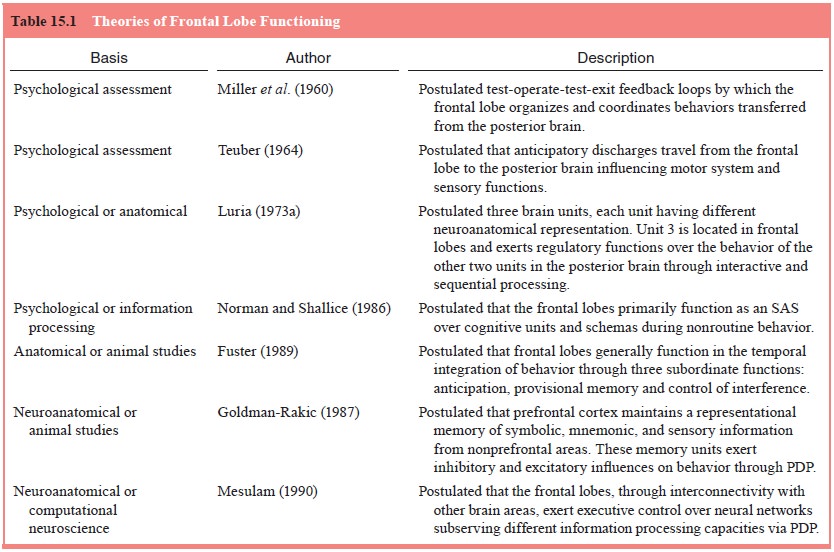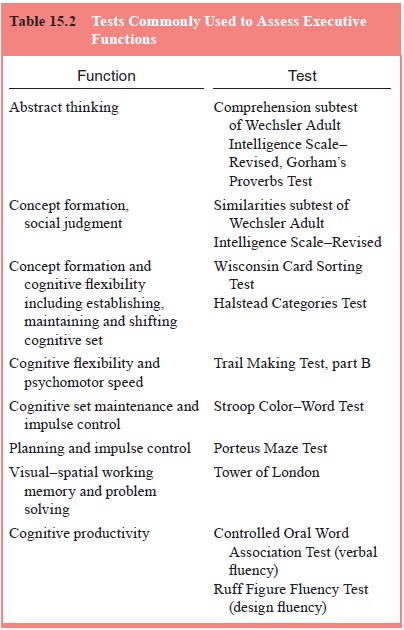Chapter: Essentials of Psychiatry: Cognitive Neuroscience and Neuropsychology
Theories of Frontal Lobe Functioning
Theories of Frontal Lobe
Functioning
Some of the influential theories of the role of the
prefrontal cor-tex and behavior are shown in Table 15.1. All theories impute to
the frontal lobes a functional role as an executive control system for other
cognitive and motor processes. The theories differ with respect to the specific
mechanisms involved and the extent to which cognitive and neuroanatomical
parameters are delineated.

Assessment of Frontal Lobe Functioning
Neuropsychological Assessment
There is an extensive literature concerning the evaluation of fron-tal lobe functioning with various neuropsychological assessment techniques. The majority of these studies are based on assessment of individuals with known frontal lobe damage or animals with experimentally induced lesions. Dubois and colleagues (1994) suggested that the skills needed for the elaboration, control and ex-ecution of goal-directed behaviors form the basis of studies involv-ing the prefrontal cortex. These abilities would necessarily include planning, mental flexibility, impulse control, working memory and evaluation of one’s behavior, that is, executive processes.
Evaluation of executive processes is fraught with
numerous obstacles. First, there are few assessment procedures that allow
enough flexibility in response or ability to consider alternative ways of
thinking, which are central elements of executive process-ing. Consider the
paradox of having to structure an examination technique that assesses the
ability of subjects to make structure for themselves (Lezak, 1995). Secondly,
executive functioning is the final stage of a processing sequence, relying
heavily on infor-mation provided by other brain areas. It follows that
successful execution of the frontal lobe functions depends, in great part, on
the integrity of the remainder of the brain. Effective executive processing is
an unlikely occurrence if the information needed from nonfrontal lobe regions
is missing or inaccurate. Thirdly, frontal lobe functioning encompasses a
number of abilities, mak-ing a complete assessment of such processes an
arduous, if not impossible, task at best. Fourthly, many of the
neuropsychologi-cal instruments used in the assessment of executive processes
are weakly constructed and insensitive to obscure changes in th

presence of compensatory strategies that occur
after frontal lobe damage. Despite these obstacles, the quest better to
understand the cognitive processes that belie the functioning of the frontal
lobes, as well as the desire to prognosticate level of adaptive functioning in
patients with known impairment, has maintained the strong interest in employing
neuropsychological assessment techniques. Many of these neuropsychological
tasks have also been used in the context of functional neuroimaging to better delineate
cognitive and neuroanatomical correlates. Table 15.2 details several of the
assessment procedures used to evaluate the integrity of the frontal lobes in
performing cognitive operations.
Related Topics